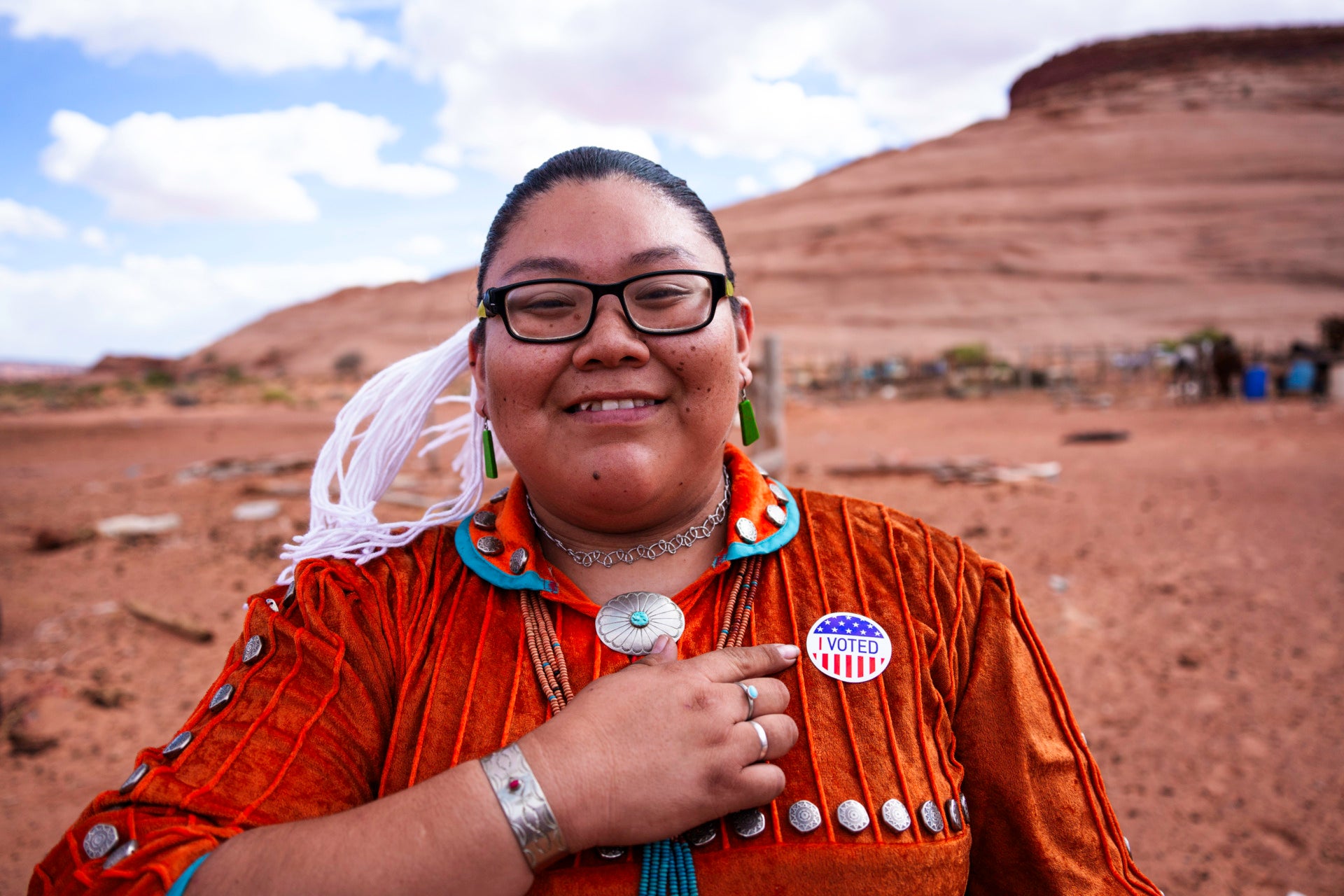America feels intensely divided in the run-up to the 2020 presidential election. For years, fewer Americans than ever have reported positive attitudes about people on the “other side” as party platforms have become increasingly divergent in their policy aims. The divide in America, and subsequent erosion of civil discourse, is evident even in the presidential candidates who should seek to unify the nation—just look to the shouting match that took place during the first debate.
Polarization in America is not new and has been building for decades, but the divide has reached new urgency, as concerns ranging from the coronavirus response to the Supreme Court nomination to racial justice to voting rights have wedged Americans further apart. And Americans are feeling the effects of polarization and the intensity of political discourse. According to the Pew Research Center, 55% of US social media users say they are ‘worn out’ by political posts and discussions. Likewise, increasing percentages of Americans say that it is stressful or frustrating to talk about politics with people they disagree with.
Despite what some may think, we don’t need fewer arguments, we need better ones. Better arguments—those that seek to learn and expand knowledge, rather than to ‘win’ or convince others – embrace three dimensions: historical context, emotional intelligence, and the recognition of power dynamics. By taking winning off the table, they are more intellectually honest and empathetic. Better arguments are about prioritizing relationships and listening passionately, paying attention to context, embracing vulnerability, and making room to transform. Arguing, if done right, can humanize those that we disagree with and bring people together in the common pursuit of truth, rather than dividing us further.
The root cause of the erosion of American discourse is not a political polarization problem, but an affective polarization problem. While political polarization refers to differing opinions and differing party platforms, which are inevitable and indispensable aspects of a functioning democracy, affective polarization refers to a mutual dislike between Republicans and Democrats. This has created a damaging negative feedback loop: hostile or bad faith arguments fuel affective polarization, while affective polarization fuels hostile or bad faith arguments. And the cycle goes on and on. If affective polarization can be better addressed, political arguments would be less exhausting and emotionally draining. Conversely, if political arguments were healthier, affective polarization would be less severe.
A lack of meaningful, empathetic engagement among Americans representing opposing views has created and sustained this affective polarization. Social media platforms employ algorithms that match users with content they are inclined to agree with, while many people more actively seek news outlets and commentators that reaffirm their worldview, and who often deploy reductive, negative caricatures of the “other side.” In this regard, a real, human interaction like arguing can work as an antidote to the popular narratives that fuel polarization. Recent polling by the American Enterprise Institute suggests that polarization is sustained by the homogenous social circles that so many Americans keep. If there were a sustained effort by Americans to step out of their ideological or identity-based comfort zones, affective polarization could be significantly limited.
But one might say: With the election days away, and the “other side” standing directly opposed to my fundamental values or identity, why should I embrace such an ethic? Shouldn’t my focus be on winning—by any means necessary? Conversely, those who wish to unify us might ask: Wouldn’t it be better if we avoided debates, ignored our divides, and came together as a nation?
While understandable, both approaches are mistaken. All of us have a role to play in restoring our civic health and public trust. This cannot wait until after the election. To paper over our divides would be amiss—there are serious issues facing our communities that need to be better explored and understood. Engaging in dialogue with those who disagree with us is the only way to expand our respective lenses. Unfortunately, we all must do better than our own politicians if we want to productively move past this hostile and divided moment in American history.
Small, microcosmic interactions can make an impact on our larger political macrocosm. Last year, the Better Arguments Project hosted an event in Detroit to bring long time residents and newcomers together to discuss the impact of gentrification on the city. Orlando P. Bailey, a Black community organizer and lifelong Detroit resident, felt frustrated with the perception that Detroit was a blank slate ready for investment, revitalization, and reimagination when it had a rich history as a Black community. “There is a story behind every vacant parcel, there was a family here, there was business here,” he said. “So, while there’s opportunity here, we’re not a blank slate where you can come and create your canvas and draw whatever it is that you want.”
In came Ian McCain, a white man and recent arrival to Detroit. His views were conflicted. He wanted to be a thoughtful, reflective community member with a nuanced understanding of his new home’s history and culture yet struggled to ascertain how to put these values into practice. Of course, the two men were not able to resolve Detroit’s tensions singlehandedly, but they left as friends with a deep appreciation for each other and their differing perspectives. Their engagement demonstrates what’s possible if people like Orlando and Ian step out of their comfort zones. What’s possible if we all do?
The Better Arguments Project is a national civic initiative created to help bridge divides – not by papering over those divides but by helping Americans have Better Arguments. This project is a collaboration among the Aspen Institute’s Citizenship and American Identity Program, Facing History and Ourselves, and Allstate.


